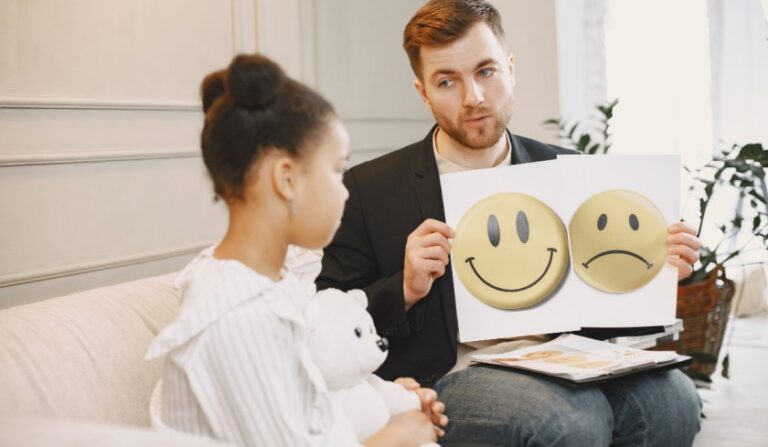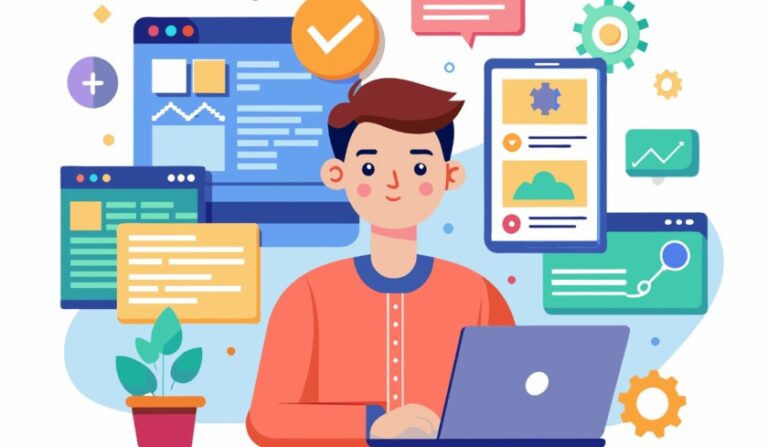In a world where mental health is just as important as physical health, free online counseling is becoming a lifeline for many. Whether you’re dealing with stress, loneliness, relationship trouble, or just want someone to talk to, getting counseling online for free can be a helpful first step. But like all good things, there are trade-offs and things to keep in mind.
Below: what free online counseling means, where to find it, its benefits, potential drawbacks, and how to make the most of it.
What Is Free Online Counseling?
Free online counseling refers to mental health support offered over the internet — via chat, video, phone, or forums — without cost (or minimal cost) to the user. These services may come from:
- Peer listeners or volunteers (non-professionals trained to provide emotional support)
- Mental health organizations, non-profits, helplines
- Platforms offering some free sessions or trial periods
- Community groups or government programs
Often, free online counseling is more about emotional support, coping strategies, and listening, rather than long-term therapeutic treatment.
Why People Choose Free Online Counseling
Here are some of the reasons free online counseling is gaining popularity — and why it might make sense for you:
- Accessibility
No need to travel, commute, or leave home. As long as you have a device and internet connection, you can talk to someone. - Cost Barrier Reduced
Traditional therapy can be expensive. Free services remove or reduce the financial hurdle, making mental health support more reachable for people who might otherwise go without. - Anonymity & Comfort
Many feel more comfortable opening up online, especially from a private space. Less stigma, less worry about being seen entering a clinic. - Immediate or Short-Wait Help
Some free platforms offer chat rooms, peer listeners, or support lines that respond quickly. This can be vital when you need someone to talk to right now. - Supplement or First Step
For many, free counseling is a way to test the waters. It might help you understand what kind of support you need, before committing to paid therapy.
Examples of Free / Low-Cost Online Counseling Services
Here are some real platforms and programs (especially in India, but similar models exist globally) that offer free or partly free online counseling or emotional support. These can help you if you’re looking now.
| Platform / Program | What They Offer for Free / Low Cost | Key Details |
|---|---|---|
| MindMantra | Free counseling & emotional support via peer listeners, chat rooms; forums for issues like anxiety, loneliness, relationships. | |
| HopeNow | Offers limited number of free online counseling sessions based on financial need. | |
| TherapyMantra | Free counseling/emotional support via “listeners,” matching to volunteer support; also free sessions in some cases. | |
| OCDMantra | Free counselling & emotional support (listeners, peer support) for issues including OCD, stress, etc. | |
| AskSHEROES | Women-only free online counselling helpline; relationship, mental health, career counselling among available topics. |
These platforms typically use chat / text or sometimes voice/video, include trained listeners or volunteers, aren’t always full therapists with credentials, but provide emotional help and guidance.
Benefits: What Free Online Counseling Does Well
Free counseling isn’t perfect, but it offers many genuine advantages:
- Immediate emotional relief: Just talking about problems helps. Having someone listen can reduce the feeling of being alone.
- Coping tools & self-help skills: Many free platforms also share self-help resources, techniques for managing anxiety, stress, etc.
- Flexibility: You can often chat at odd hours or schedule quickly.
- Low pressure: Since free options often aren’t long-term or formal, there is less commitment; good for those unsure about starting therapy.
- Safe space: Especially helpful for people who feel judged or stigmatized; talking online from home can feel safer.
Limitations & Things to Be Careful About
Free counseling is great, but it has limitations. Knowing them helps you get the best experience — or decide when to upgrade to paid or professional therapy.
- Not always licensed professionals
Some free counselors or listeners are not clinically trained therapists. Advice may be well-intended but not always clinically guided. - Limited depth or duration
Sessions may be one-off, short, or superficial. Long-term mental health issues often need consistent, professional care. - Privacy & Confidentiality Risks
Data security varies; not all platforms follow strict guidelines (HIPAA, GDPR, etc.). Be cautious about personal info. Free services especially may have weaker protections. - Availability & Reliability
Volunteers may not always be available; wait times can vary; free slots may be limited. - Possible Emotional Risk
If someone triggers strong feelings, grief, trauma, or crisis, free counseling may not be enough. In emergency situations, you should contact professionals or crisis hotlines. - Consistency & Follow-up
Regularity matters for many mental health interventions. Free services may lack continuity or follow-up, which can reduce effectiveness.
How to Choose & Use Free Online Counseling Wisely
To get the best from free online counseling, here are some tips:
- Check credentials: If possible, see whether the platform uses licensed professionals or trained peers. Know who you are talking to.
- Read privacy policy: Understand how your data will be used, stored, or possibly shared.
- Search for reviews or testimonials: What do others say? Especially people in similar situations.
- Start small: Try a few sessions to see how you feel, whether it helps.
- Set realistic expectations: Free support is valuable but may not fix everything. Use it as an adjunct, not always a replacement for full therapy.
- Know when it’s time for professional care: If symptoms worsen, thoughts of self-harm, or crisis, reach out to mental health professionals or emergency services.
Real-Life Stories: What Users Often Say
It helps to know what free online counseling feels like from people who’ve tried it:
- Many say just having someone listen without judgment provided relief — “I felt lighter after just one chat.”
- Some feel the anonymity helpful: “Could open up more when I couldn’t see someone face-to-face.”
- Others find peer-support and forums helpful for everyday stress, but mention needing more structured help later.
- Occasionally, people report feeling frustrated if they expect long-term results but only receive short or one-time sessions.
When Free Counseling Isn’t Enough
Free counseling is not always sufficient for certain situations. Consider moving to professional/paid therapy if:
- You experience severe depression, anxiety, suicidal thoughts
- Trauma or grief that feels overwhelming
- Addiction issues
- Significant relationship or interpersonal conflict that’s long-standing
- You want official diagnosis, medication, or structured therapy
Paid therapy or formal mental health services may be more helpful in these cases because they offer licensed professionals, confidentiality, consistent sessions, evidence-based treatment plans.
Summary: Free Counseling Is a Valuable Tool
Free online counseling is a powerful resource. It lowers barriers, offers comfort, and gives help when you might not be able to get professional therapy immediately.
Key points to remember:
- It works best for emotional support, coping, and starting mental health journeys.
- It often uses volunteer listeners, peer support, or limited free access — not full therapy in many cases.
- Safety, privacy, and credentials are worth checking.
- If needed, escalate to professional help.
FAQs
Q: Is free online counseling the same as therapy?
A: Not always. Therapy often implies sessions with licensed professionals, systematic treatment, possible diagnosis. Free online counseling often means emotional support, peer listening, non-clinical help.
Q: Can free online counseling help with anxiety or depression?
A: Yes — especially for mild or moderate symptoms, or as a supplement. It can help you learn coping mechanisms, feel heard, reduce stress. For more serious cases, professional therapy is safer.
Q: Are free counseling services confidential?
A: Usually they try to be, but confidentiality and security vary widely. Always check the platform’s privacy policy and whether communication is encrypted.
Q: How do I find a free counselor who understands people like me (cultural background, language, sexual orientation, etc.)?
A: Search platforms that offer filters (language, specialty). Look for non-profits or community-based organizations focused on your region or identity group.
Visit The Business Vision Magazine For More Articles






